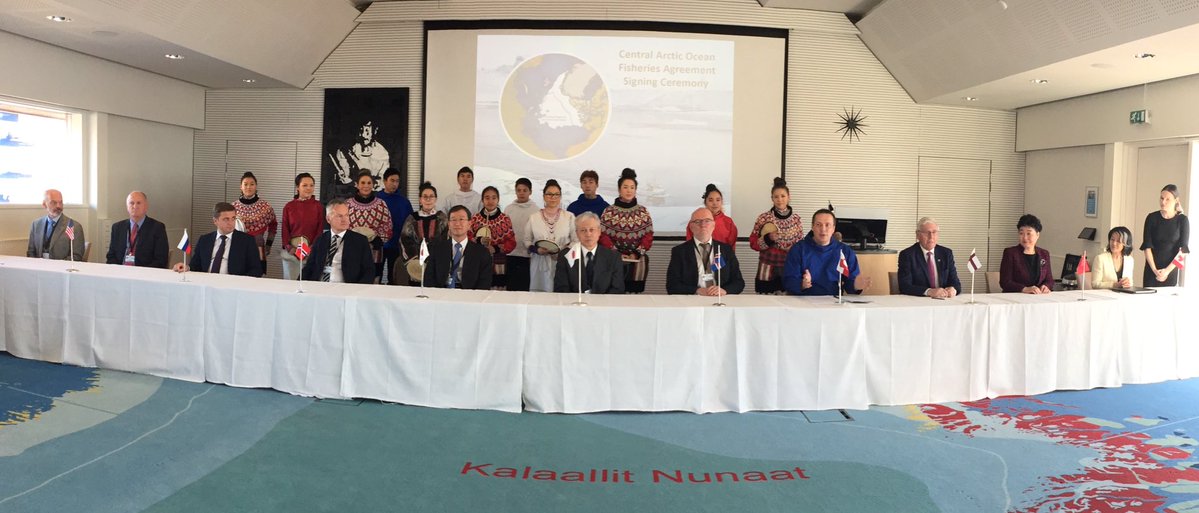Canada ratifies treaty to protect Arctic Ocean fisheries
Canada is the third signatory to ratify the agreement, after Russia and the EU.

Canada has ratified the agreement to prevent unregulated high seas fisheries in the Central Arctic Ocean, bringing the treaty one step closer to coming into force.
“Canada is leading the way to protect our oceans and combat illegal fishing,” said Jonathan Wilkinson, the minister of fisheries, oceans and the Canadian Coast Guard, in a May 29 release on the ratification.
“That is why we were at the forefront of the negotiations for this historic agreement to protect the central Arctic Ocean.”
The agreement was signed by Canada and nine other parties last October in Ilulissat, Greenland.
In addition to Canada, the other signatories include Norway, Russia, the United States, China, Iceland, Japan, the Republic of Korea, the European Union, and Denmark for Greenland and the Faroe Islands.
But to date, only Canada, the EU and Russia have ratified the agreement, which will only come into force when it is ratified by all 10 signatories.
When that happens, the agreement will prohibit commercial fishing in the high seas portion of the central Arctic Ocean for a period of at least 16 years.
The Central Arctic Ocean, sometimes described as the “doughnut hole” at the top of the world, lies 200 miles off any coastline, and beyond the control of any Arctic nation.
The worry is that, without regulation, the Central Arctic Ocean could draw in factory-fishing trawlers to plunder fish stocks.
These waters include those off Nunavut’s Ellesmere and Axel Heiberg islands.
The agreement also provides for the participation and inclusion of Inuit.
To encourage the ratification of the agreement and work on its research and monitoring program, Canada invited all signatories to Ottawa this week.
“I was happy to attend the first meeting of the signatories of this agreement in Ottawa,” said Sean Casey, Wilkinson’s parliamentary secretary.
“Continuing to work with our international partners ensures that we act in the interest of continued sustainable ocean stewardship first and foremost. This includes working with the Indigenous peoples of Canada’s North to draw on their traditional knowledge and to take into consideration the impacts on their traditional lifestyles.”